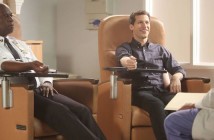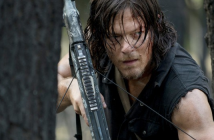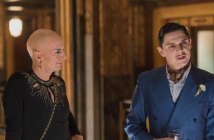June 21, 2015, 9:00 p.m. (EST), HBO
The best and worst thing True Detective season two has going for it is that it is not its predecessor, and is, in theory, completely unburdened by the expectations that went along with that season. As an anthology series, the show can feel free to do something totally different in each season, to tell new stories in new locations, and even with new tones. In theory, season two of True Detective could learn from the mistakes of season one as well as the successes, and come out of the gate a stronger series as a result. On the other hand, season two is in some sense the make-or-break moment for the series. Season one was a phenomenon of sorts, and even if I found most of the hushed tones in which that season was spoken of overblown (I liked the season a lot, but mostly thought it was a decent enough detective story saved by stellar performances and a canny sense of how to use heady ideas to cover up for weaknesses in its storytelling), it had enough tricks up its sleeve to keep me interested. If season two is of a similar quality level, I expect the series will have a solid shelf life and will remain part of the cultural conversation. But the possibility exists that season two will cement the show as a one-hit wonder, or worse, tarnish the reputation even of what came before.
“The Western Book of the Dead” is an inauspicious beginning, to say the least. From the first, its clear that the ghosts of season one are lodged deeply in the mind of Nic Pizzolatto, and that his thematic concerns may be narrower than we might have hoped. This isn’t, necessarily, a problem, as even an anthology series can tell stories around central themes that remain a constant. But stripped of the philosophical trappings of season one, and without the occult mystique that Chambers references and hollowed out landscapes of Louisiana offered, it isn’t clear initially whether there is much to Pizzolatto’s questions about the toxic nature of masculinity. Setting season two under the bright California sun may prove to be a mistake; it may make it too easy to see the flaws at the center of the writing.
But let’s be clear about this up front. True Detective doesn’t need to be full of pseudo-philosophy and faux supernaturalism to be interesting. At its heart, this is a pulp television series with delusions of grandeur, and “The Western Book of the Dead,” with its corrupt cops, web cam entertainers, tortured veterans, and pools of booze has plenty of noir trappings on offer. If this season works as a southern California noir story, that’s a rich tradition that can be fully mined for some great television. Justin Lin’s camera traces urban sprawl amidst natural paradise, as freeways snake through mountains and stain views of the sea. His direction situate us in a world man has crafted from paradise, a world lowered by violence, greed, and the poisonous visions of futurist snakes. There’s something to all of this, or at least, there might be. But in this first hour, very little of it sparks like it should. Instead, it plays out as a long, dour march towards three traumatized cops standing over a gruesome corpse as the sun comes up, wondering how its come to this, as it must again and again, for them as scarred heroes in a noir landscape, and for us as viewers accustomed to casual brutality.
The corpse in question belongs to the missing City Manager of Vinci, Ben Caspere, whose role in the burgeoning criminal empire being built by Frank Semyon (Vince Vaughn) is as yet unclear. Our true detectives are Ray Velcoro (Colin Farrell, with all of the glower of McConaughey’s Rust Cohle and none of the magnetism), Antigone Bezzerides (Rachel McAdams) and Paul Woodrugh (Taylor Kitsch), all from different agencies for reasons that for the moment remain mysterious. If there’s anything tying all of this together at this early date, it’s the sense that all of our primaries are desperately searching for something more, looking to find something to give them meaning or to save them from their own darkness. That all of this seems to be tied up in transportation is fitting for a season that seems interested in trying on the trappings of LA noir, which has always been fascinated by the way a bustling metropolis rose out of the desert and asserted itself on unlikely terrain.
The writing here is not Pizzolatto’s best (Farrell has a colorful threat at one point that is laughably bad, and when Kelly Reilly’s Jordan Semyon opines “Everybody gets touched” its clear the show is straining for profundity it can’t yet find), the performances feel mired in one-note dourness, and despite some nice touches here and there, Justin Lin lacks the mastery of tone and place that made Cary Fukunaga’s direction of season one so buzzed about. There’s not much to write home about in “The Western Book of the Dead,” which is heavily weighed down by exposition and spends its full runtime building to a convergence of characters its hard to care about yet. It could be this is the set up for greatness, and plenty of stellar noir stories take time getting all of the pieces set up before things can start unraveling, but this premiere is a less than auspicious debut. If there’s nothing more to True Detective than unearned darkness and reworked tropes, the show may have already spun its best yarn. If the show can’t kill its darlings, it should at least try to look better in their clothes.
The Roundup
- “I welcome judgment.”
- “Behold what was once a man.”
- “Never do anything out of hunger. Not even eating.”
- “I used to want to be an astronaut. But astronauts don’t even go to the moon anymore.”
- “A good woman mitigates our baser tendencies.”
- “What the fuck is Vinci?” “A city, supposedly.”
“The Western Book of the Dead” is an inauspicious beginning.
-
OKAY




